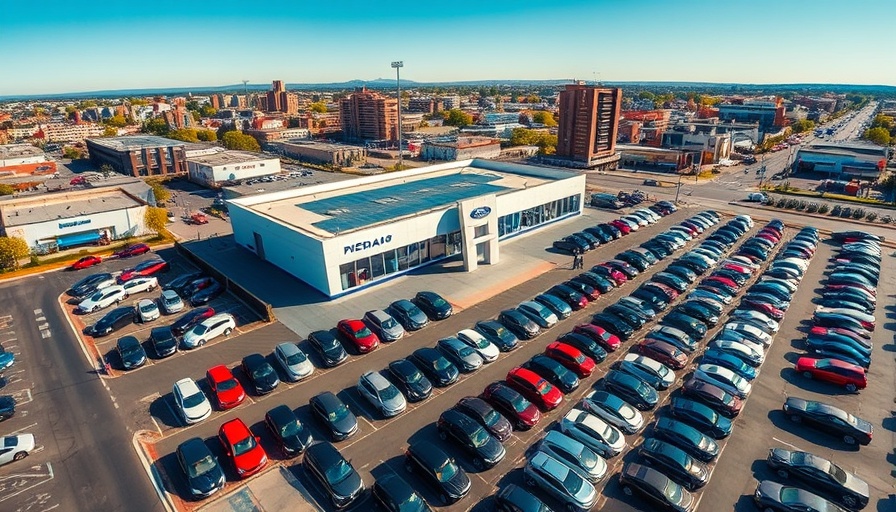
Ford's Price Increase: A Ripple Effect in the Auto Market
Ford has announced a price hike on three of its Mexico-built vehicles—the Bronco Sport, Maverick, and Mustang Mach-E—due to increased tariffs. This strategic adjustment reflects not only Ford's response to external economic pressures but also hints at broader implications for the automotive market and consumers alike.
Why Tariffs Are Shaping the Landscape
The imposition of tariffs on imported goods has become increasingly common in today's economy, influencing the pricing strategies of manufacturers. The rise in costs for raw materials and components has forced automakers like Ford to make difficult decisions, translating to higher sticker prices on popular models. This trend can be attributed to ongoing trade tensions which complicate supply chains and inflate costs.
Impact on Consumers and Dealers
As prices rise, consumers face the challenging decision of whether to prioritize new purchases or consider pre-owned options. Dealerships, on the front lines of these changes, must adapt to shifting consumer sentiment. The price adjustments may initially deter buyers but could also result in heightened demand for competitive pricing strategies, especially during trade-in season when customers seek the best deals.
Navigating the New Normal for Dealerships
Dealership owners and General Managers must be proactive in adjusting their business strategies. Understanding these market changes will help them stay ahead. Here are some practical insights for navigating this evolving landscape:
- Focus on Customer Education: Help clients understand the factors behind price increases and arm them with financing options that may alleviate their concerns.
- Enhance Inventory Management: Be strategic about stocking and sales tactics to align with the shifting market dynamics. Offering value through pre-owned vehicles can help maintain foot traffic.
- Invest in Service Excellence: Offering exceptional customer experiences and robust service plans can incentivize buyers to choose your dealership over competitors.
A Look Toward the Future
As Ford raises prices, the implications extend far beyond the immediate effect on sales. The auto industry's landscape continues to shift, and as tariffs influence pricing strategies, the need for agility among dealerships will become even more critical. Being aware of these trends can provide dealerships with the tactical advantage necessary to thrive in uncertain economic conditions.
Ultimately, keeping abreast of these developments allows dealership leaders to adjust operations strategically, ensuring they remain competitive.
 Add Row
Add Row  Add
Add 




Write A Comment